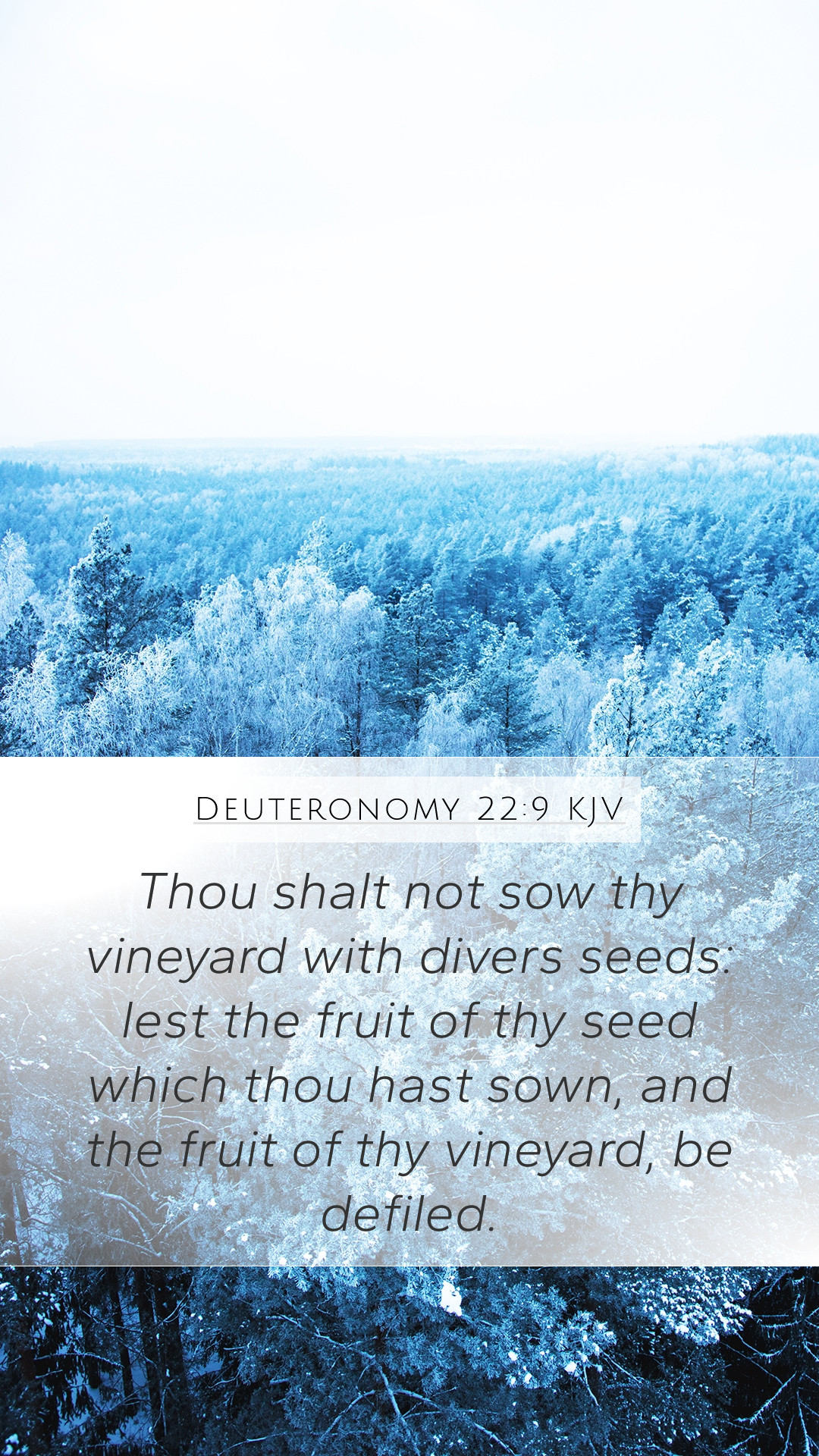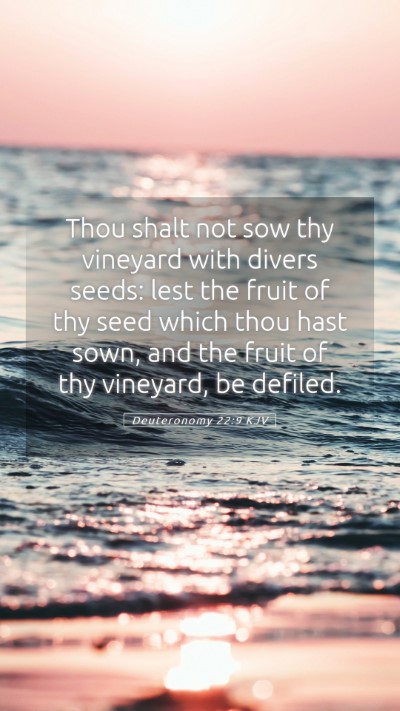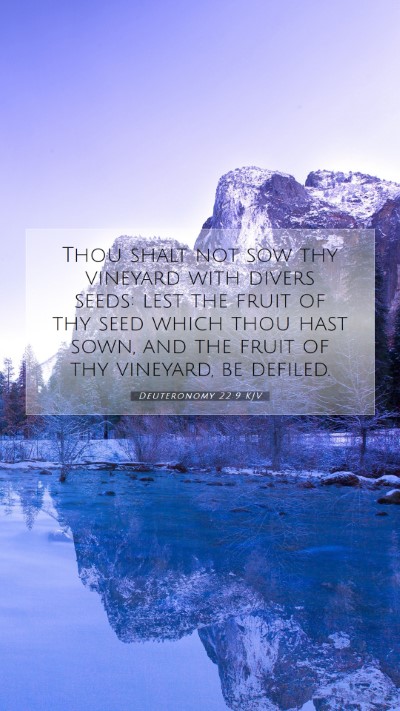Bible Verse Commentary on Deuteronomy 22:9
This verse states: "Thou shalt not sow thy vineyard with divers seeds: lest the fruit of thy seed which thou hast sown, and the fruit of thy vineyard, be defiled." This commandment can be understood through various lenses, providing rich insights into its meaning.
Overview of Deuteronomy 22:9
Deuteronomy 22:9 addresses the practice of mixing different seeds in a vineyard. The primary focus is on maintaining purity and preventing defilement. This principle extends beyond agriculture to highlight God's concern for separation and holiness in His people.
Insights from Commentaries
-
Matthew Henry's Interpretation
Henry emphasizes the spiritual implications of mixing seeds, suggesting that it symbolizes the need for purity in worship and practice. He argues that each believer should strive for a singular focus on holiness, avoiding any influences that could compromise their faith.
-
Albert Barnes' Commentary
Barnes points out that this rule served as a metaphor for the nation of Israel. Just as mixed seeds can spoil a harvest, so can mixed influences ruin the spiritual condition of the people. He highlights God's desire for His people to remain undiluted in their devotion and service to Him.
-
Adam Clarke's Analysis
Clarke interprets this law as a reflection of broader principles established in the Torah. He notes that it is essential for God's people to maintain distinctiveness and separation from pagan practices. His analysis encourages believers to consider the idea of spiritual distinctiveness as crucial.
Theological Implications
The directive in Deuteronomy 22:9 signifies more than agricultural wisdom; it reveals God's plan for purity among His people. The intentionality behind the command is a reminder of God's expectation for His people to be set apart for His purposes.
Application for Today
Modern believers can derive several practical applications from this verse:
- Maintaining Spiritual Focus: Christians are called to concentrate on their faith without distractions from worldly desires.
- Avoiding Compromise: Just as mixing seeds can taint a harvest, compromising beliefs can lead to spiritual decay.
- Holiness in Daily Life: Individuals should strive for purity in their thoughts, actions, and associations.
Bible Study Insights
For those seeking deeper Bible study insights, Deuteronomy 22:9 can serve as a basis for discussions in bible study groups or online Bible study formats. Users can reflect on the significance of purity and separation in their own lives and communities.
Cross References
This verse correlates with several other passages that echo the themes of purity and separation:
- Leviticus 19:19: Discusses the principle of not mixing fabrics or livestock types.
- 2 Corinthians 6:14: A call for believers to avoid unequally yoked relationships.
- James 1:27: Defines pure religion as one that keeps oneself unspotted from the world.
Conclusion
In summary, Deuteronomy 22:9 offers valuable lessons on the importance of purity, holiness, and spiritual focus. Understanding this verse through various commentaries enhances one's grasp of its meaning and application in daily life. This verse encourages believers to assess their spiritual practices and influences, aiming for a faithful, undiluted walk with God.


